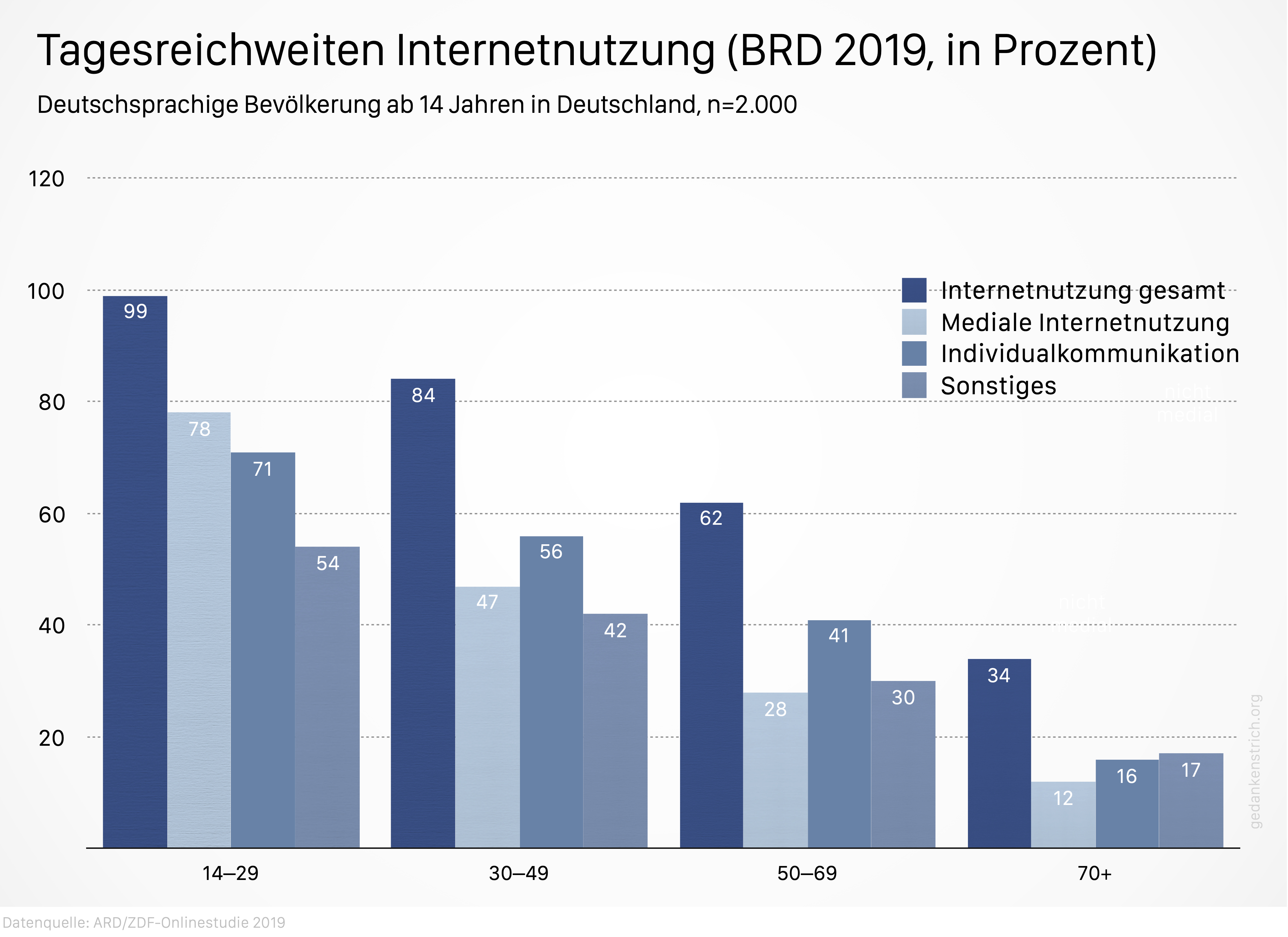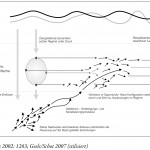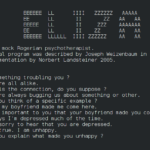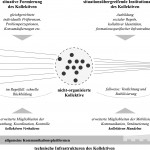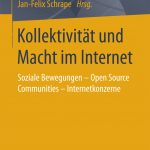28. März 2020
Soziopolis ist nun in die Dokumentation soziologischer Stimmen zur Corona-Krise eingestiegen (u.a. auch auf Grundlage der Sammlung hier). In dieser Übersicht noch nicht reflektiert werden die Eingaben von Hartmut Rosa, der die aktuelle Krise vor allen Dingen auch als Chance zur Entschleunigung und zum Innehalten beschreibt (»Plötzlich guckt man intensiv aus dem Fenster und sieht die ersten Blüten […]«, tagesspiegel) – in Gesprächen aber langsam feststellen muss, dass dies allenfalls für die privilegierten Teile der Bevölkerung mit eigenem Garten und stabilem Einkommen gilt (taz, swr2, sz). Mit Sicherheit werden seine Äußerungen in der nächsten Folge der Soziopolis-Reihe aufgegriffen werden.
Weiterlesen »
20. März 2020
Mit jedem weiteren Tag zeichnet sich immer deutlicher ab: Die Corana-Krise wird das gesellschaftliche, wirtschaftliche und politische bzw. öffentliche und private Leben nicht nur für einige Wochen, sondern für viele Monate und Jahre prägen – und es gehört nicht viel dazu, um vorherzusagen: Das ist ein Einschnitt, an den wir unser ganzes weiteres Leben immer wieder zurückdenken werden. Ich möchte an dieser Stelle wie schon im letzten Post einfach, unkommentiert und naturgemäß selektiv einige Stimmen dazu aus der Soziologie dokumentieren, die in dieser Zeit auch eine seismographische Funktion erfüllt (bzw. einnehmen sollte):
Weiterlesen »
1 Kommentar
15. März 2020
Die Corona-Krise und der aktuelle Shutdown des öffentlichen Lebens bietet eine gute Gelegenheit, über Gesellschaft nachzudenken – nicht nur mit Blick auf die Frage, welches Maß an sozialer Distanzierung die Ausbreitung des Virus’ verlangsamen und so die jeweiligen Gesundheitssysteme entlasten kann (siehe dazu einen Artikel der Washington Post), sondern z.B. auch hinsichtlich der Bedeutung öffentlicher Veranstaltungen und oft als selbstverständlich empfundener Versorgungsstrukturen in der Alltagswelt, der Relevanz journalistischer Nachrichtenmedien, dem Vertrauen in staatliche Strukturen, der Erosion von sozioökonomischer Erwartungssicherheit oder veränderten Formen des (technikvermittelten) sozialen Miteinanders.
Dementsprechend ist die Corona-Krise ein viel diskutiertes Thema auch unter Sozialwissenschaftlerinnen und Sozialwissenschaftlern, wobei sich bislang naturgemäß primär einschlägige Zeit- und Gegenwartsdiagnostiker in die öffentliche Diskussion eingebracht haben. Nachfolgend fünf (zu ergänzende) Beispiele:
Weiterlesen »
28. Januar 2020
Das Programm für den dritten Workshop im Arbeitskreis Digitalisierung und Organisation in der Sektion Organisationssoziologie zum Thema »Theoretische und empirische Grundlagen einer soziologischen Digitalisierungsforschung« (5. und 6. März, TU Berlin) ist fertiggestellt und kann hier abgerufen werden.
20 Vorträge aus vielfältigen Themenfeldern und eine Keynote von Sabine Pfeiffer stehen auf der Liste. Dazu organisieren wir auch diesmal einen interaktiven Austausch im Kontext unseres Workshops. Wir freuen uns auf spannende Diskussionen mit allen Teilnehmenden. Eine Teilnahme ist auch ohne eigenen Vortrag möglich.
20. November 2019
Auf der STS Conference Graz 2020 organisiere ich eine Session zum Thema »Digital Platforms and the Transformation of Public Communication« und freue mich auf instruktive Einreichungen zum angeschlagenen Thema:
Intermediary media platforms are not an exclusive phenomenon of the digital age […]. However, only with the establishment of the Internet and easy-to-use devices, recipients see themselves in a position to access the catalogue of the platforms themselves and to select the content with algorithmic tools—just as all usage dynamics can be aggregated and evaluated. Thus, on the one hand, ‘platforms’ as socio-technical coordination structures become the focus of attention; on the other hand, this change results in serious shifts in media economics and in the structures of public communication […]. Against this background, this session aims to explore the potentials and limits of given conceptions of the public sphere:
To what extent do well-established theories continue to offer an informative classification foil in the investigation of public communication?
Which novel dynamics of interaction and exchange remain invisible in traditional models of the public sphere?
Which alternative conceptions of networked platform publics have so far proven to be instructive beyond individual case studies?
Do the empirically observable dynamics in contemporary public communication even speak in favor of saying goodbye to ideas of a public sphere as a whole and of starting from multiple arenas of public communication that are at best loosely coupled with one another?
11. Oktober 2019
In dieser Woche ist die aktuelle ARD/ZDF-Onlinestudie erschienen, die bereits seit 1997 erhoben wird und insofern einen guten Überblick zu den langfristigen Verschiebungen im medialen Nutzungsverhalten bietet. Einige Kernergebnisse:
Weiterlesen »
25. August 2019
Im Sommer ist die diesjährige Ausgabe der seit 1959 durchgeführten Allensbacher Markt- und Werbeträgeranalyse (AWA) zu den Konsum- und Mediengewohnheiten der deutschen Bevölkerung (23.318 Befragte; Herbst 2018 / Frühjahr 2019; Grundgesamtheit: deutschspr. Bevölkerung ab 14 J.) erschienen. Ausgewählte Ergebnisse:
Rezeption tagesaktueller Nachrichten
- Ein wachsender Anteil der jüngeren Altersgruppen informiert sich nicht (mehr) regelmäßig über das aktuelle Nachrichtengeschehen: Lediglich 45 Prozent der 14- bis 19-Jährigen und 67 Prozent der 20- bis 29-Jährigen gaben an, sich gestern über das aktuelle Geschehen informiert zu haben. In den Altersgruppen ab 40 waren es hingegen 80 bis 90 Prozent.
- In der Langfristbetrachtung zeigt sich, dass das Interesse an tagesaktuellen Nachrichten zumindest zum Teil auch an die jeweilige Lebensphase gekoppelt zu sein scheint: 2004 gaben 55 Prozent der 14-19-Jährigen an, sich über das aktuelle Geschehen täglich zu informieren. Diese Befragten fielen heute in die Altersgruppe der 30- bis 34-Jährigen, die Ende 2018/Anfang 2019 zu 75 Prozent angaben, am Tag zuvor tagesaktuelle Nachrichten abgerufen zu haben.
- Im »Glaubwürdigkeitsranking« liegen das öffentliche TV und Radio (70 bzw. 64 Prozent), Lokalzeitungen und überregionale Zeitungen (64 bzw. 61 Prozent) sowie Wochenmagazine und -zeitungen weit vor Onlineangeboten von klassischen Medienanbietern wie z.B. Spiegel Online (20 Prozent), Privatfernsehen (15 Prozent), Angeboten von Online-Diensten (8 Prozent) sowie Blogs, Foren und Social-Networking-Diensten (8 bzw. 7 Prozent).
Weiterlesen »
